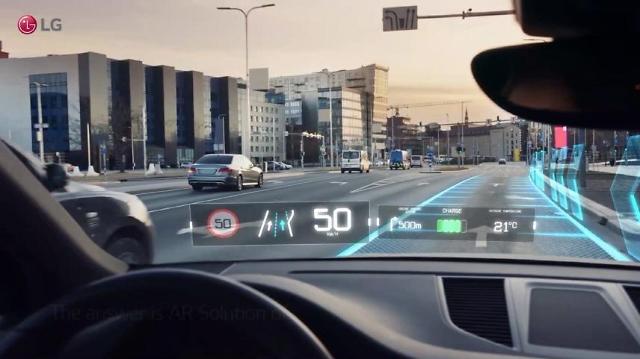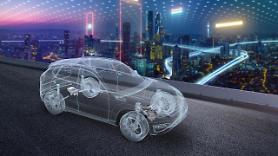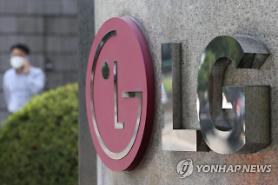
[Courtesy of LG Electronics]
SEOUL -- LG Electronics will push for a new business to supply an augmented reality software solution that can be connected to various sensors in real-time and show visual information on pedestrians and surrounding vehicles as graphic images. The solution underlines LG's strategy to diversify its business structure and preemptively respond to various needs of automakers which are gradually expanding cases of outsourcing only software.
The augmented reality (AR) software solution projects various information on the windshield through a head-up display or shows it to instrument panels and central information displays. AR is an interactive experience of a real-world environment where the objects that reside in the real world are enhanced by computer-generated perceptual information.
"As the importance of software in the automobile parts market is growing due to electrification and smartization, the growth potential of AR software will also be high," LG's vehicle component solution division head Kim Jin-yong said in a statement on November 11. "We will proactively respond to various needs of carmakers by utilizing our prepared AR software solutions based on accumulated technology and know-how."
A software development kit, a user Interface composer and simulation tools were included in the AR software solution so that carmakers can easily and conveniently use and update software.
Cars housing top-notch technologies have various sensors to detect nearby traffic and pedestrians. Sensors collect information on other cars in the front and rear of a moving vehicle so that the car's processor can decide whether to engage automatic brakes or slow down to avoid a collision. LG's front-facing cameras are connected to driving assistance systems that help cars collect on-road information.
LG Electronics closed its troubled smartphone business in April as part of a group-wide strategy to put more resources into other viable sectors such as robotics, organic light-emitting diode technology, infotainment systems and powertrain parts.
In July 2021, LG agreed to form a consortium with the University of Toronto and develop artificial intelligence algorithms for autonomous vehicles that can recognize objects more accurately. ZKW, an Austrian lighting system producer acquired by LG, and partner companies are working on the development of new micromirror modules, a complicated device that can specifically and precisely shoot laser beams. Such modules will enable smart light functions for autonomous vehicles.
LG Electronics acquired Israel's cybersecurity platform developer Cybellum in September as cybersecurity is an important element in next-generation vehicles which are evolving into complex systems connected with numerous components.
Copyright ⓒ Aju Press All rights reserved.



